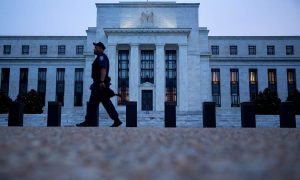After a rise during early August, gasoline prices have fallen back down, losing over 13 cents per gallon this week. The decline coincided with the coming of Labor Day weekend, which is often recognized as the end of the summer driving season.
Prices fell after weekly stockpiles of crude oil, gasoline and diesel fuel all were sharply higher than expected in Wednesday’s Department of Energy report.
With peak seasonal demand for gasoline coming to an end, futures markets are pointing toward slightly lower prices for the balance of the year.
Long-term, the petroleum market is still dealing with record supplies of gasoline and crude oil, which should keep a lid on prices until the stockpiles go down.
As of midday Friday, October gasoline futures traded for $1.30 per gallon, a price that doesn’t include taxes or other expenses.
Cattle prices at 5-year low
Cattle prices collapsed to a five-year low on Friday at $1.02 per pound. Prices are dropping on expectations that grilling demand will decrease in the coming weeks as temperatures break lower in the shift toward fall weather.
As prices are falling, some cattle producers are dumping their herds as they fall in value, which is exacerbating the cycle. Meanwhile, meatpackers have the luxury of waiting for cheaper prices, which is making them less aggressive about buying.
One of the few bright spots in the cattle industry is that corn is near a seven-year low at $3.15 per bushel. This lowers a cattle feeder’s expenses, but it can also hurt him as low corn prices allow his competitors to cheaply add weight to their cattle, increasing the overall meat supply and driving prices even lower.
Coffee ‘in the black’
Coffee prices are “in the black,” rising almost 20 percent so far this year and nearing the highest price in 18 months.
Prices rose over $1.50 per pound this week as concerns grew that the world’s biggest coffee grower, Brazil, could have a smaller crop this year. Damage from a mid-July frost now appears more severe than previously thought. Brazil is in the Southern Hemisphere and experiences its coldest weather in June and July.
Other major coffee producers are experiencing lower output as well, which has helped cause the market to gain steam on fears of a supply shortage. As of midday Friday, December arabica coffee futures traded for $1.52 per pound.
Walt and Alex Breitinger are commodity futures brokers in Silver Lake, Kansas. They can be reached at 800-411-3888 or www.paragoninvestments.com.


Click here to view original web page at www.omaha.com












